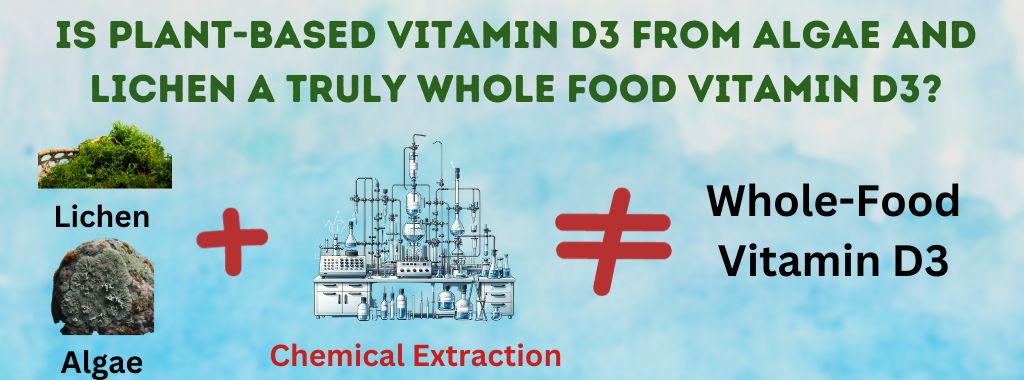Does plant-based Vitamin D3 from algae and lichen truly live up to its wholesome reputation? As Vitamin D remains pivotal for bone health and immune function, a surge in interest towards plant-based diets and supplements is particularly noticeable among vegans, vegetarians, the health-conscious, and those eco-aware. While this algae and lichen-derived alternative seems promising, we must delve deeper to uncover its true merits.
The Rise of Plant-Based Vitamin D3 Supplements
In recent times, the health and wellness community has witnessed an undeniable shift towards plant-based diets. This movement isn’t just limited to food but extends to dietary supplements as well. To cater to this growing demand, manufacturers are now offering Vitamin D3 supplements made from seemingly eco-friendly sources like algae and lichen. The ‘plant-based’ label, which is often associated with all things natural and good, makes these supplements especially appealing to vegans and vegetarians.
Unmasking the “Natural” Promise
While these plant-based sources of Vitamin D3 might seem like the perfect solution on the surface, it’s essential to look beneath the label. Despite the ‘plant-based’ moniker, these supplements might not be as natural and benign as you’d think.
The Not-So-Green Extraction Process
One major concern arises from the extraction process itself. Harvesting Vitamin D3 from algae and lichen may require the use of toxic chemical solvents. Not only do these chemicals carry potential health implications, but their use and disposal also have environmental repercussions. When we opt for a plant-based lifestyle to reduce our ecological footprint, introducing such chemicals seems counterintuitive.
The Loss of Nutrient Synergy
Beyond the extraction process, there’s another aspect to consider. Naturally occurring Vitamin D in whole foods is part of a nutrient matrix, a combination that works in harmony to deliver health benefits. When Vitamin D is isolated and purified for supplements, this natural synergy is disrupted. This means that even if you’re consuming the required amount of Vitamin D, you might be missing out on the full spectrum of benefits that nature intended.
Choosing Nature’s Best
Given these revelations, it’s wise to be discerning about where you source your Vitamin D from. Instead of relying solely on supplements, consider incorporating whole food sources of Vitamin D into your diet. Cod liver oil and UV-exposed mushrooms stand out as excellent choices. They not only provide a nutrient-rich form of Vitamin D but also align with the principles of sustainability and environmental consciousness.
Toward a Greener Future
In conclusion, while the idea of plant-based Vitamin D3 supplements might sound enticing, it’s crucial to be informed and critical. By choosing natural, whole food sources of essential nutrients, we can ensure our health and contribute to a sustainable and environmentally friendly future. Always remember to make choices that are not just good for you, but also for the planet.

